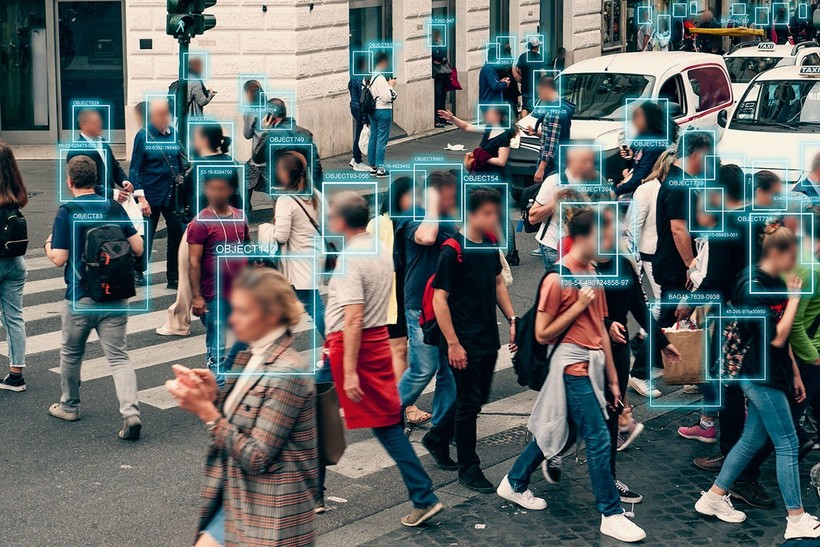A Human City Technology
Since most people in the world have
moved into cities, the question of arranging life
in urban space rationally is becoming more and
more relevant. Widespread introduction of the
‘smart city᾿ has manifested a megatrend – to a
certain degree involving modern megacities –
from New York, Tokyo and Singapore to Shanghai, Delhi and Moscow. In fact, a ‘smart city’
is generally a human-orientated, convenient, secure and environmentally friendly environment
based on modern energy, transport and informatics solutions. This also includes security
and video surveillance systems built on neural
networks and artificial intelligence.
Russia is among the leaders in introducing these
technologies into everyday urban life.Th e 2018 FIFA World Cup is NtechLab among the clearest
manifestations. During the championship, among
other things, computer vision technologies developed by NtechLab, were widely tested and demonstrated excellent results. e deployed system connected to more than 500 city surveillance cameras
allowed more than 100 individuals included in offender databases to be detained during the championship. In addition, they helped in retrieving the
Budweiser sponsorship cup stolen during one of
the matches.
This is just one particular case when video analytics systems were used. Even today, NtechLab’s
algorithms allow dozens of criminals to be identified at transport facilities every month in one
Latin American capital; they help regulate people streams and avoid crowds at train stations in
India; to build a smart and secure 21st century
digital city in one of the largest Gulf countries.
Computer vision from NtechLab provides antitheft protection in Russia’s largest retail stores,
more than 30,000 monthly pre-trip inspections
with instant authentication, and secure online
banking.

In fact, the capabilities offered by computer
vision algorithms go beyond all this. Based on
experience, we can say that, on the whole, it
makes the city safer, more convenient and environmentally friendly. A real-life task would be
to adapt thousands of cameras in an urban metropolis to notify the ambulance service when
someone falls down in the street or of an attack of an illness (a stroke, for instance). Along
with vehicle traffic management, car and public
transport recognition opens up broad prospects
for creating an infrastructure orientated on
people’s real needs.
In the ‘smart city’ of the future, you will not
have to wait for a bus for a long time and then
push inside, as depersonalised passenger data
routes and time intervals will make for more
accurate planning. The city of the future is a
queue-less and crowd-less one. From the perspective of the coronavirus pandemic, this becomes especially relevant.
When introduced, such systems will enable
efficient resolution of another acute problem in
modern metropolises – rubbish and its timely
removal. Each removal of rubbish entails costs,
while the bins by condominia are filled unevenly. For maximum efficiency, the vehicle routes
need to be planned to avoid ‘empty’ points
along the way. Standard measures such as urban
video surveillance solve this problem only partially, whereas manual checks on images from
thousands of cameras and routing development
require extra resources. Smart video analytics can assist by analysing both the fill level of
the rubbish bins and the quality of discharge
work, including third party contractors. The
best routes for rubbish lorries can be generated
automatically from data from cameras, cutting
fuel costs and increasing staff efficiency.
We have to admit that most people still mistrust AI. The stereotypical mind shaped largely
by the media and the hyped dystopias create a
picture of some robotic mind empowered to
make independent decisions, determining who
should do what. In practice, AI is nothing more
than a human decision support system. As in
security or any other industry, the system only
suggests what to focus on particularly, leaving
the final decision with the human operator. The
robot can eliminate routine operations and prcesses that can be difficult to control. So, the
objective is to help, not control and supervise.
On the whole, as AI advocates, we can declare
with confidence that robots will be capable, in
the very near future, of taking on operations
humans simply cannot cope with owing to natural limitations. They will look through huge
bulks of video, analyse gigabytes of data, react
instantly to dangerous situations such as a fight,
a heart attack, or child abuse. Algorithms will
assist in locating people who are lost and cannot help themselves. No matter how paradoxical it might sound, computer vision will make
the city of the future more human.
In turn, NtechLab intends to develop and actively promote such technological solutions not
just in Russia but all over the world. Today, the
company has more than 30 big clients in around
15 countries in various regions, including the
CIS, Europe, the Middle East, Latin America
and Southeast Asia. NtechLab products are
used in public and corporate security, retail,
finance, entertainment and hospitality industries. Every year, the company is top ranked in
international computer vision competitions.
The latest achievements include prizes in international competitions for recognition of actions and the so-called ‘deepfakes’, or fake faces,
by video.
The company is working continuously working to boost the accuracy and speed of algorithms, expanding the domains where computer
vision may assist humans. Last year, when the
world faced the coronavirus pandemic, we presented our dedicated anti-covid solution. It
helps prevent crowds in public places, ensure
that people maintain social distancing and wear
masks. The solution was in great demand both
in the regions of Russia and abroad.
We are continuing our active development.
Last autumn, NtechLab raised over 1 billion
rubles from the international consortium of
the Russian Direct Investment Fund (RDIF)
and some leading Middle East sovereign wealth
funds. This was not only recognition of the authority of NtechLab and the high quality of its
solutions, but also a solid foundation for further technological expansion to the benefit of
people and humanity in general, in cities and
beyond.











